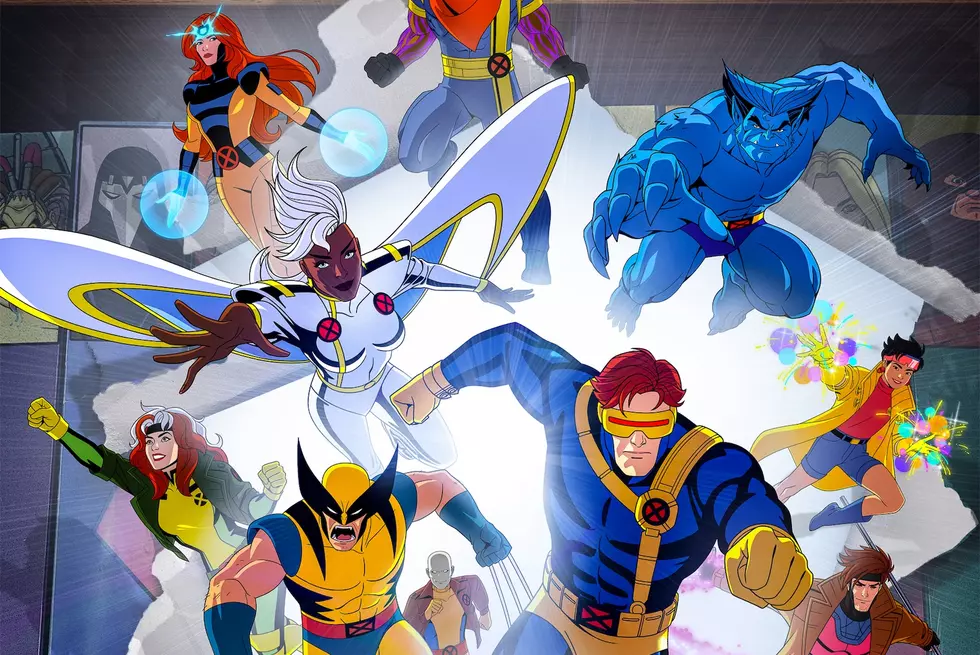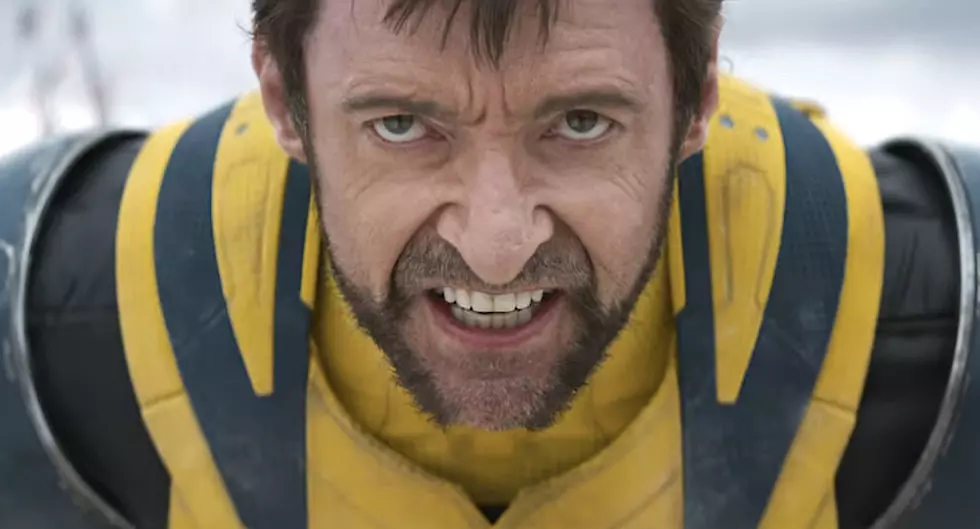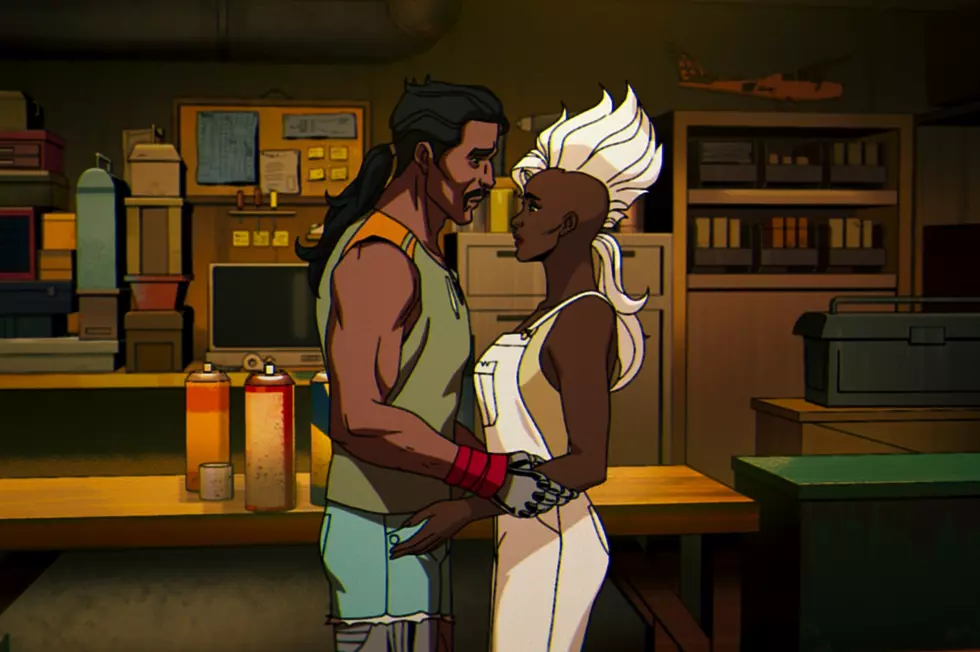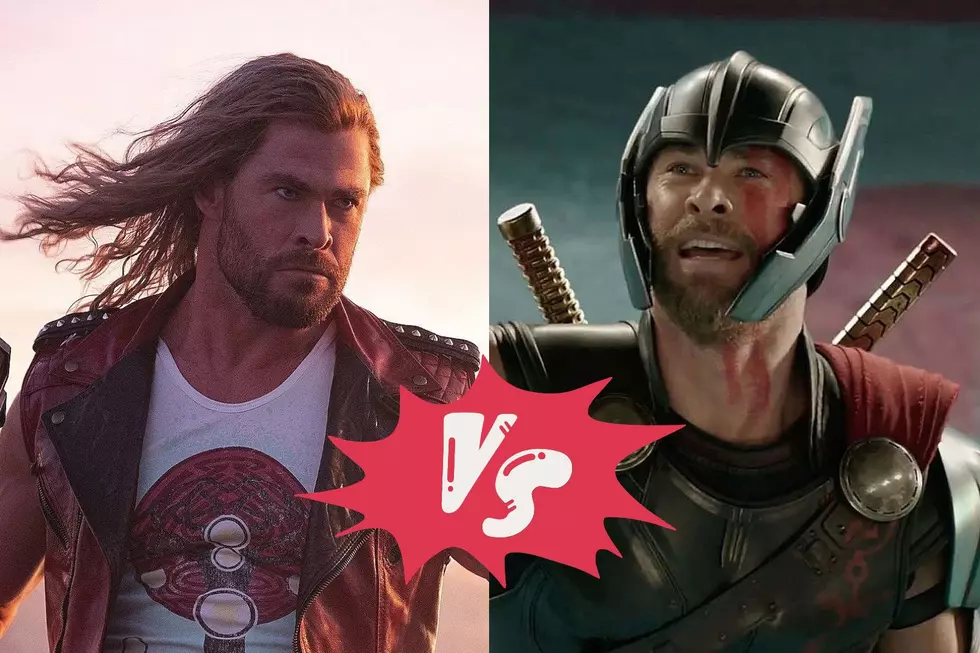
World Colliding: Are “Shared Universes” the Future of Blockbuster Cinema?
If you say you saw 'The Avengers' coming, you're a liar.
And we're not necessarily talking about the film's massive box office success or cultural impact, either. That's all after-the-fact stuff. We're talking about the fact that the film exists in the first place. We're talking about how Marvel Studios (with a little help from some deep-pocketed friends) managed to create a series of individual franchises with their own films and characters before having them all come together in a special crossover event. 'The Avengers' didn't just unite Iron Man, Captain America, Thor and the Hulk, it openly acknowledged that all of these characters lived in the same world and that the events of their own films could actually have an impact on each other.
They all live in the same universe ... and audiences love it.
For longtime comic book fans, the idea of a massive roster of superheroes being able to appear in each other's stories and come together to take down greater threats isn't a new idea. Batman and Superman have been teaming up since before the DC comic book universe was a unified thing. The Marvel comic book world was built from the ground up to be singular world where the X-Men could team up with Spider-Man and the Fantastic Four to fight a Captain America villain, but you never saw this happening on the big screen. A Batman movie was a Batman movie. A Spider-Man movie was a Spider-Man movie. There are a number of reasons for this, many of them legal and many of them creative, so it cannot be overstated now world-changing it was for Marvel to shatter this mold and build their big cinematic universe. It's literally the first of its kind.
Now, waist-deep into Marvel Studios' "Phase Two," the time and effort spent on creating this shared universe is starting to pay off. 'Iron Man 3' dealt directly with the emotional fallout of 'The Avengers.' 'Thor: The Dark World' featured a crowd-pleasing cameo from Chris Evans' Captain America. It's all paying off in exciting and unexpected ways -- thanks to solid storytelling and great casting, we've genuinely look forward to Marvel movies because it's like hanging out with super-powered friends and, if we're lucky, another one of our buddies will pop in to say hi.
The craziest thing about all of this is how easy Marvel Studios has made it look. They toiled away behind closed doors and suffered all of their growing pains and headaches away from the public eye. Now that they've proven that it can be done, the wrathful eye of fanboys have turned on Warner Bros. and DC, who are currently struggling how to play catch-up with Marvel and build a shared universe of their own.
But here's what's most interesting about WB/DC's current struggle. It's not fascinating that they're having a hard time (that's just the movie business being the movie business), it's fascinating that they've seen what Marvel has done and wants a piece of the action. They're done with Superman, Batman and Green Lantern movies that exist in their own little bubble -- they want a 'Justice League' movie. They want the detail and depth and serialized world-building that Marvel and Disney have.
Warner Bros. isn't alone, either. Although they're best suited to replicate Marvel's success with their huge stable of DC comics characters, other studios have taken note of Marvel's success and want in. 20th Century Fox, who owns the cinematic rights to 'Fantastic Four' and 'X-Men' and have announced that, from this point onward, the two franchises will exist in the same world and a crossover is not out of the question. Then there's Sony, who have announced that their will be a 'Spider-Man' movie every year including spin-off films for Venom and the Sinister Six, some of the more famous villains in Spidey's rogue's gallery.
That's where the idea of cinematic shared universes should start raising eyebrows. A superhero universe that is only home to the mutant X-Men and the Fantastic Four? A movie world where every character in Spider-Man's world gets their own film series? If this is the future of geeky movie universes, with boundaries defined entirely by which handful of characters a studio happens to own, then shared universes at the movies are going to begin and end with Marvel and DC. You can only squeeze a character and his associated cast so many times before he runs dry, which is why Marvel is diversifying with movies as nutty as 'Guardians of the Galaxy' and 'Ant-Man.' Watching the X-Men and the Fantastic Four team up and/or fight once could be interesting, but there's really nowhere to go after that.
Here's the truth: eventually, comic book movies are going to go out of fashion ... but that doesn't mean that shared universes will go away. If Marvel keeps making it work and DC finally gets rolling, big crossover franchises could be here to stay. Eventually, this type of storytelling could bleed into other genres and once it does, it could outlive the superhero movie boom.
Let's start with one potential shared universe that's already (and unfortunately) been nipped in the bud. With its fairly dismal box office, it's unlikely that 'Jack Ryan: Shadow Recruit' will inspire any sequels. However, Paramount had bigger plans, hiring Christopher McQuarrie to write an adaptation of 'Without Remorse,' which follows author Tom Clancy's other major character, black ops specialist John Clark (Tom Hardy was being courted for the part). The kicker is that Kevin Costner would have appeared in both films as the same character, CIA liaison Thomas Harper, immediately bridging the Jack Ryan films with the John Clark films. Considering that the literary world of Tom Clancy is a huge filled with dozens of characters who pop in and out of each other's narratives, there was a strong chance that Paramount saw 'Jack Ryan: Shadow Recruit' as their chance to kickstart the political thriller version of Marvel's movie universe.
Even if there won't be a Tom Clancy movie universe, there are plenty of other literary properties that have all the benefits of comic book shared universe. The novels of Stephen King, for instance, are all connected through his 'Dark Tower' series, where Roland the Gunslinger meets up with characters from 'The Stand' and 'Salem's Lot' while going on a fantasy adventure of his own. People have been struggling to bring 'The Dark Tower' to the big screen (or to television) for years, but if they can pull it off, they could build an entire media franchise where King's various characters cross paths and intersect.
The lessons of Marvel Studios may also be having an impact on franchises that are already successful. What are we to make of the upcoming 'Harry Potter' spin-off 'Fantastic Beasts and Where to Find Them'? Sure, if could be just a one-and-done spin-off, but surely creator J.K. Rowling and the producers of that franchise see the creative (and monetary) value is expanding that universe on screen in a massive, interconnected way. We can't imagine any fans saying to to watching a prequel series that follows Harry's parents in the first war against Voldemort.
Which brings us to the final point: how long will audiences actually go along with this style of interconnected filmmaking? The past decade has seen audiences embrace more complicated and continuity-heavy blockbusters outside of superhero fare. Daniel Craig's James Bond movies are the first 007 outings in decades to actually act as direct sequels to one another and they've been the most successful. In the world of horror, the 'Saw' and 'Paranormal Activity' films work overtime to make sense of their character history and continuity, a huge departure from the slapdash, unconnected sequels of '80s and '90s horror. In fact, it could be argued that Marvel Studios' success is simply the natural extension of what audiences have already been excited about for awhile now.
We'll leave you now with a warning to Hollywood and to Marvel Studios and to everyone else making these kinds of movies. Yes, interconnectedness at the movies is fresh. It's a blast. It's fun and satisfying in a way that still feels totally new. But, take a moment to glance at the world of comic books, which is where this conversation begins and ends. For all of the money the movies make, superhero comics themselves aren't exactly big business. Even the most successful series only sell a couple hundred thousand issues a month (which isn't enough to qualify as a bad opening weekend for a movie) and the reason for this, the great barrier, is that many people see the tightly woven, dense and continuity-heavy world of superhero comics as oppressive. There's no way in and people give up before they even try.
So, do what you're doing. We like it. Heck, the world seems to like it too. Just know when enough is enough. Take what you need from the world of comic books but know that their greatest appeal is also what always has them on the ropes.
More From ScreenCrush









